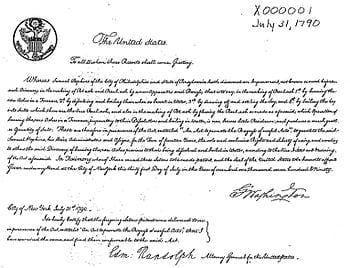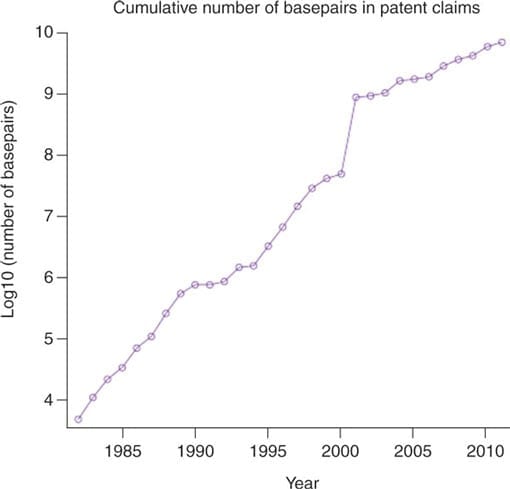
Intellectual property: After being blamed for stymying innovation in America, vague and overly broad patents on software and business processes could get the chop
AT LAST, it seems, something is to be done about the dysfunctional way America’s patent system operates. Two recent developments suggest calls for patent reform are finally being heard at the highest levels. First, in 2013, defying expectations, the House of Representatives passed (by an overwhelming majority) the Innovation Act, a bill aimed squarely at neutralising so-called patent trolls. These are individuals or companies who buy up lots of patents and then use them to extract payments from unsuspecting victims. Second, the US Supreme Court agreed to rule on what is the most contentious issue of all: which inventions are actually eligible for patent protection.
Frivolous lawsuits filed by trolls cost American companies $29 billion in 2011 alone. Trolls (known in the legal world as “patent assertion entities” or “non-practising entities”) do not make anything, but send out thousands of “demand letters” to companies that allegedly infringe what are often vague and overly broad business-process and software patents. In recent years their targets have spread from high-tech firms to universities, retailers, hospitals, charities and even consumers. The trolls demand a settlement fee, which many of the victims pay rather than face the punitive cost of litigation—$2m or more these days.
Concern that the flood of frivolous patent suits in America is hobbling innovation and competition has caught Congress’s attention. Startups threatened by such actions frequently have to withdraw from the business or go bust. Bigger companies that choose to fight spend tens of millions of dollars on litigation that could otherwise go on research and development.
In a sense, the legal bullying by trolls is a symptom of a wider complaint: the poor quality of many patents granted by the US Patent and Trademark Office (USPTO) in the past decade—especially those covering computer software and business transactions (themselves often based on software algorithms). One such patent covers simply upgrading computer software over the internet. That is admittedly useful, but hardly novel or non-obvious—the three fundamental requirements for eligibility adopted by patent jurisdictions everywhere.
Numerous corporations have started using their portfolios of poorly defined software patents to prevent rivals from entering the market. Witness the series of lengthy legal disputes between Apple and Samsung. Too often, it seems, software patents operate not as an incentive for innovation, but as a barrier to entry and a tax on new-product development. This is not what patent law was intended to do. Although the USPTO has been mainly at fault, America’s courts have not helped.
One of the worst offenders has been the US Court of Appeals for the Federal Circuit, the appellate court that rules on patent disputes, among countless other things. Unlike its specialised counterparts in Europe and Japan, the Federal Circuit, with its grab-bag remit, has never acquired expertise in patent jurisprudence. As a consequence, it has issued some bizarre software rulings.
The Latest on: Patent trolls
[google_news title=”” keyword=”Patent trolls” num_posts=”10″ blurb_length=”0″ show_thumb=”left”]
via Google News
The Latest on: Patent trolls
- Patent Trolls Threaten Floridian Seniors’ Access to the Interneton May 8, 2024 at 5:04 am
By Saul Anuzis Like Americans across the country, Florida’s senior citizens rely on their smartphones and laptops to access the critical broadband infrastruc ...
- Activision to pay $23.4m for patent infringementon May 7, 2024 at 8:21 am
A jury has ruled that Activision Blizzard will pay tech incubator Acceleration Bay $23.4 million for patent infringement. As reported by Law.com, the May 3 ruling comes after the incubator began its ...
- 5 Steps to Patent an Ideaon May 6, 2024 at 4:59 pm
Think you've got a million-dollar idea? You're not alone. There's always a few people out there at any moment, convinced they've got the next big app or the next popular product, while ...
- New Data Show There Is a Problem with the U.S. Patent System—But It’s Not Patent Trollson May 6, 2024 at 4:15 am
If the headlines are to be believed, every aspect of American life, from farming to football, is under threat due to excessive patent litigation. While these anecdotes may seem compelling, it is ...
- Moderna Investors Should Beware Patent-Dispute Fallouton April 23, 2024 at 11:40 am
Moderna's stock soared on positive cancer vaccine trial results, but legal troubles loom as a patent dispute threatens massive damages. Read my analysis here.
- Senator introduces legislation targeting patent trollson April 23, 2024 at 3:43 am
PCWorld helps you navigate the PC ecosystem to find the products you want and the advice you need to get the job done.
- Report: Obama to announce measures against patent trollson April 23, 2024 at 3:33 am
After months on the market, Windows 8 tablets have yet to rack up the sales Microsoft and PC vendors were originally hoping for. But on Monday Taiwanese PC maker Acer showed off what could be the ...
- How two small Texas towns became the patent-law centre of Americaon April 15, 2024 at 5:00 pm
Around the same period, “it also happened that there was an explosion of patent-troll litigation,” says Paul Gugliuzza of Temple University, referring to plaintiffs who own bad patents and ...
- Meta Transfers AI-Related Patents to Midjourney to Thwart Patent Trollson April 3, 2024 at 3:10 pm
But the specter of the patent troll threatens to keep companies bogged down in distracting and costly legal battles. “An open approach to AI leads to better, safer products, faster innovation ...
- patent trollon March 12, 2024 at 12:07 am
Hypertext is one of South Africa’s leading technology news and reviews sites. We publish original content daily for consumers and businesses. All original words & media by Hypertext by htxt ...
via Bing News










